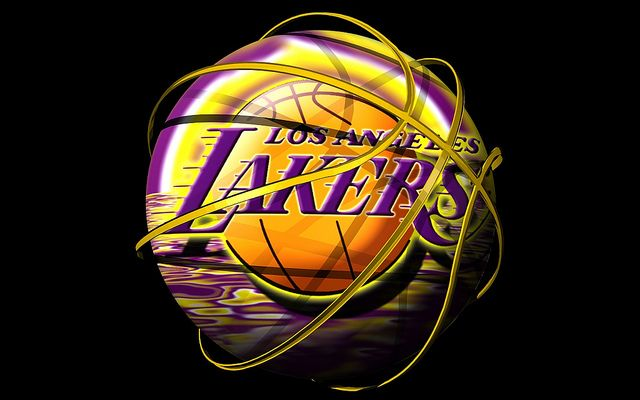The Lakers Are Forcing Us to Ask a Pivotal Question About the Future of Pro Sports

The Los Angeles Lakers were recently sold by the Buss at a record $10 billion valuation, and it has forced who is in, around and follows professional sports to ask a crucial question: At what point will franchise-valuation bubble pop? Or will it just keep rising?
Pro sports franchises have always been considered excellent investments for the ultra-rich. Celebrities and retired athletes themselves purchase minority stakes, often knowing full well they will receive an absurd return on investment once they cash out. And look, it’s tough to argue with logic. While the Lakers sale is painted as an anomaly because they’re one of two flagship NBA franchises, along with the Boston Celtics, and because they are based in California, they are not the only organization posting massive valuation increases. Sure, they get a market bump. The partnerships they’ll (eventually) be able to strike with the best online sportsbooks in California could be worth tens of millions per year, and that’s before including their media rights deal.
Still, their year-over-year gains might stand out, but they are not unprecedented. More than half of the NBA’s 30 teams have seen their franchise valuations increase by 15 percent or more year-over-over. And according to CNBC, other pro sports leagues in North America are following a similar trend.
Yet, there has to be a limit to the valuation explosions…right? Like, this can’t go on forever…can it? After all, consider what we know about the real estate market. There is always a bubble. Even the dot-com boon a couple of decades ago had a ceiling. The newest, hottest, most lucrative trend always seems like it has no cap on its ROI potential, until that limit is reached. And now that California is home to the first $10 billion sale in North American pro sports history, more people are trying to figure out when this bubble pops, assuming it ever will.
Ownership of Pro Sports Franchises Like the Lakers are Changing
The minority stakes we mentioned above are an important part of pro-sports valuations. Or rather, they used to be. Though there has always been a majority owner of pro sports teams like the Lakers, Los Angeles Dodgers, Los Angeles Kings, etc., sometimes that majority share doesn’t even amount to half of the organization. Instead, a billionaire may own 30 or 40 percent of the franchise, which represents the largest singular stake.
Increasingly, though, we are seeing hedge funds come in, consolidate minority shares, and then eventually pounce on an even larger stake in the team once it’s up for sale by the actual majority shareholder.
That is what’s happening here with the Lakers. It is also what happened, to an extent, with the sale of the Celltics. And if it’s not hedge funds, it is people with casino money. The Las Vegas Sand Corporation purchased the majority of the Dallas Mavericks roughly two years ago. (Fun fact for Californians: The Lakers sold at a valuation ($10 billion) that is more than the combined valuation of the Celtics and Mavericks ($9.6 billion). That is absolutely wild.) With casino and hedge-money already in the game, people are wondering what the next type of investor might be. The answer? Saudi Arabia.
Saudi Arabia is Already Investing Heavily in Pro Sports
In fact, calling Saudi Arabia the “next frontier” might undersell this development. They are already entering the pro sports game with its seemingly bottomless investment funds.
As Joe D’Urso of The Athletic writes:
“Saudi Arabia is attempting to rebuild its image and prepare for a world without oil — and sport is a key part of its strategy. Although other nation-states have exerted influence on global sport in the past, we have never seen anything as comprehensive as Saudi Arabia’s vast investments in a multitude of different sports over the past few years. Saudi Arabia’s smaller neighbour Qatar hosted the 2022 men’s football World Cup and many other competitions, but Saudi has even more cash to splash and limitless ambitions in doing so. This may be a lifeline for some sports, but for critics, this is all an exercise in sportswashing, a distraction from the country’s terrible human rights record.”
The ethics of allowing Saudi Arabia investors to enter the pro sports world is worth plenty of discussion. By the numbers, though, they are already doing it. And it is happening by the billions. Horse racing, cricket, golf, tennis, soccer and even football have seen infusions of money from Saudi Arabia. The NBA has seen some of it as well, though they have a cap on how much of a stake these funds can take up.
Still, many believe that even leagues with restrictions in place will get rid of them. That may wind up being the most realistic way of continuing to prop up franchise valuations as time goes on. And this, in turn, can extend the life of the valuation bubble.
What is the Biggest Threat to Pro Sports Valuations?
The answer to this question isn’t quite clear, even though plenty of people are pondering it. However, one potential driving force stands out above the rest: media rights deal.
Live television remains catnip for most pro sports leagues in North America. They sell the rights of their broadcast to legacy media companies, often for billions of dollars per year, and that helps buttress the entire operation. However, in the age of cord-cutting and decentralized streaming, this revenue stream is ostensibly at risk.
We have already, for instance, seen the likely demise of regionalized sports networks, otherwise known as RSNs. Teams in California, New York, Boston, Chicago, etc. will never be hard up for cash infusions from local deals, but other markets cannot say the same. We have already seen leagues like the NBA and MLB need to assume control of certain RSNs.
Continuing to monetize broadcasting rights is mission critical to the sustained raise of pro sports valuations. Without those deals continuing to climb in value, we could see franchise values plummet. Some believe we could see a similar effect given the rise of Esports. Just as people consume media differently, they now consume different types of competitions. While Esports as a substitute for live-action sports feels far-fetched, it is clearly on the minds of North American leagues. Most have branched out into Esports divisions themselves.
For the time being, it doesn’t seem as if valuations will dip. The Lakers are proof. And so long as these national media-rights deals remain lucrative, and so long as people still consume sports at all, the dip in valuations may not come anytime soon.
________________________________________________________________________________________________________________
Advertisements placed in our Guest Contribution sections are in no way intended as endorsements of the advertised products, services, or related advertiser claims by NewsroomPanama.com, the website’s owners, affiliated societies, or the editors. Read more here.





